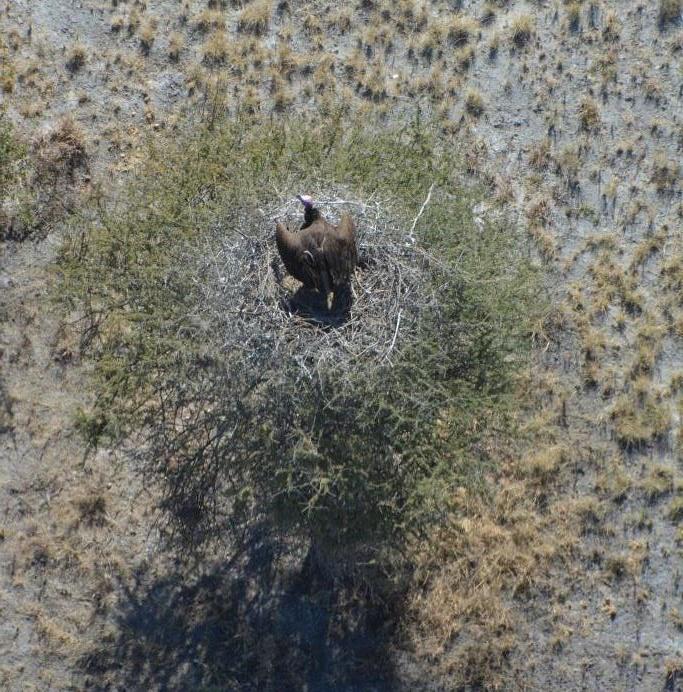Rebecca Garbett
Other projects
14 Oct 2014
Determining the Impact of Lead on the Globally Threatened White-Backed Vulture
To investigate alternative sources of lead for vultures and other wildlife other than spent ammunition and to determine breeding success rates necessary to sustain stable vulture populations.

Aerial shot of nesting Lappet-faced vulture.
African vultures are heading towards extinction. In November 2015 4 African vulture species were up-listed by the IUCN to critically endangered and a further 2 to endangered. All but one are found in Botswana. The current African vulture crisis is reminiscent of the Asian vulture crash which saw the near extinction of 3 vulture species and resulted in catastrophic consequences related to increased disease and undesirable scavengers in the absence of vultures. The poisoning of vultures with agro chemicals is the largest threat to vultures across Africa. Lead poisoning of free-ranging vultures in Africa was completely un-investigated, yet is now proven to be a potentially significant threat in Botswana.
33% of 600 vultures tested in Botswana had medium to high lead exposure levels. This could represent a significant mortality threat or have severe sub lethal effects. Ingestion of spent ammunition in carcasses from hunting is the most likely source. In order to alleviate or identify possible alternative sources, further investigations are required. Breeding success is an essential aspect of population survival and sustainability. Large losses attributed to agro chemical poisoning and the additional threat of lead poisoning may cement vulture demise. This study will establish whether vulture productivity is sufficient for recovering from these losses and maintaining population stability.
Botswana is one of the most popular hunting destinations on the continent and lead is the most widely, if not, the only ammunition used in Botswana. Currently, there is a complete lack of awareness of the potential impacts of lead on scavenging wildlife species; yet it may be rapidly accelerating their demise. Also unknown, is the potential of vulture populations to recover from the huge losses that they are experiencing. Studies which ultimately assess the viability of these populations recovering solely through reproduction are critical to the applied conservation of vultures.